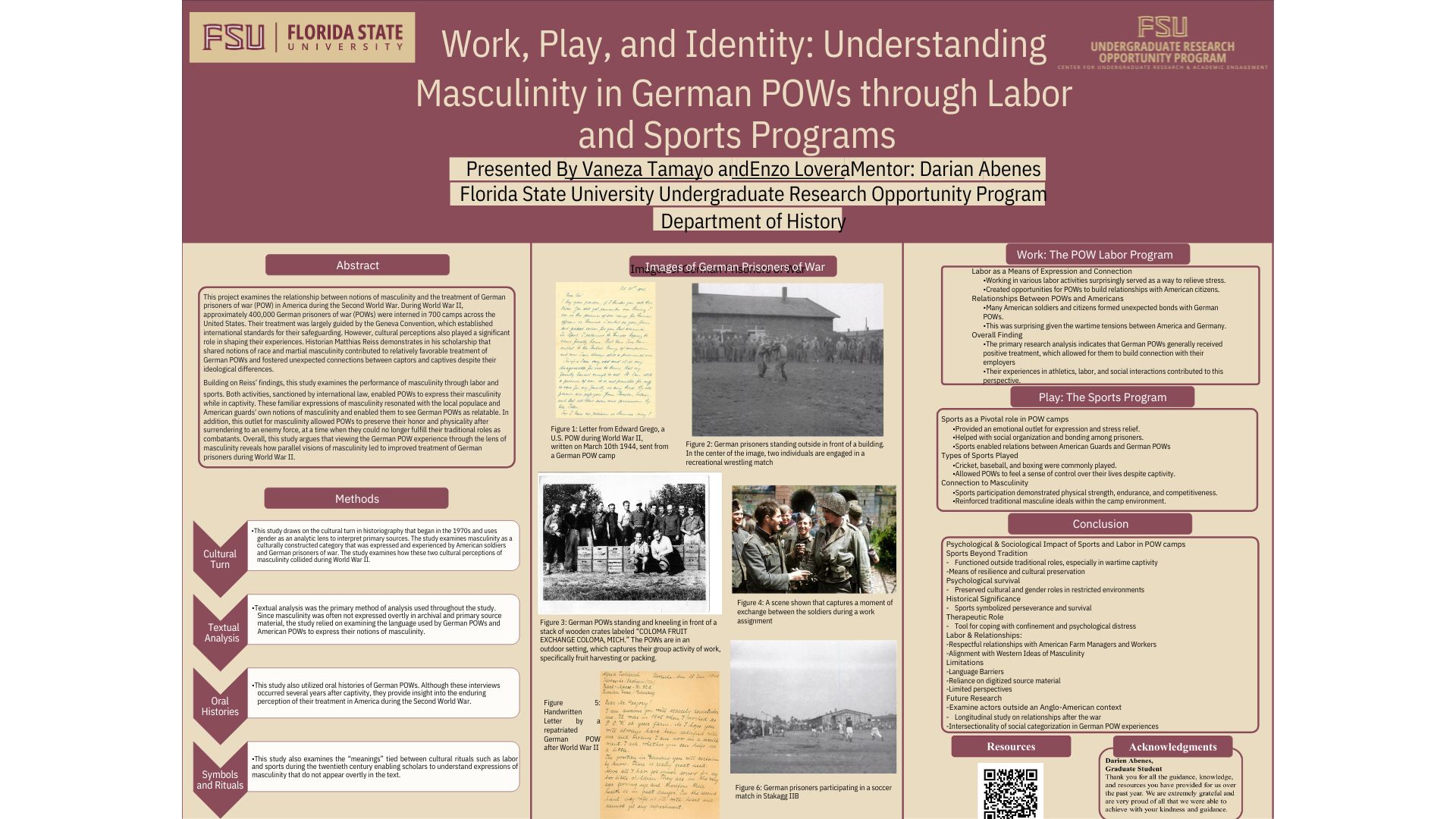Research Symposium
25th annual Undergraduate Research Symposium, April 1, 2025
Vaneza Tamayo Poster Session 1: 9:30 am - 10:30 am/ Poster #252

BIO
Hello, I am Vaneza Tamayo! A little bit about me is that I believe I am a creative person, I reach for my goals, I am a hard worker, and I am compassionate. I am from Fort Myers, Florida, and although I am seven hours away from home, a little distance doesn't scare me from reaching my goals. I have long-term goals of becoming a veterinarian and getting into vet school, so I try my hardest to immerse myself in one-of-a-kind experiences such as the UROP program. A big reason I joined UROP is because I had a long ambition of getting involved in research here at FSU, because of this program I have checked one of my long-term goals that I wanted to experience as an undergraduate, and I am grateful for the opportunity that this program has given me. My Research interests are history, evolution, animal behavior, and medicine. I hope my UROP experience will open more doors for me that work outside my history project and allow me to gain experience in other topics I am interested in.
Work, Play, and Identity: Understanding Masculinity in German POWs through Labor and Sports Programs
Authors: Vaneza Tamayo, Darian AbnesStudent Major: Biological Sciences
Mentor: Darian Abnes
Mentor's Department: History Mentor's College: FSU Co-Presenters: Enzo Lovera
Abstract
This project examines the relationship between notions of masculinity and the treatment of German prisoners of war (POW) in America during the Second World War. During World War II, approximately 400,000 German prisoners of war (POWs) were interned in 700 camps across the United States. Their treatment was largely guided by the Geneva Convention, which established international standards for their safeguarding. However, cultural perceptions also played a significant role in shaping their experiences. Historian Matthias Reiss demonstrates in his scholarship that shared notions of race and martial masculinity contributed to relatively favorable treatment of German POWs and fostered unexpected connections between captors and captives despite their ideological differences.
Building on Reiss’ findings, this study examines the performance of masculinity through labor and sports. Both activities, sanctioned by international law, enabled POWs to express their masculinity while in captivity. These familiar expressions of masculinity resonated with the local populace and American guards' own notions of masculinity and enabled them to see German POWs as relatable. In addition, this outlet for masculinity allowed POWs to preserve their honor and physicality after surrendering to an enemy force, at a time when they could no longer fulfill their traditional roles as combatants. Overall, this study argues that viewing the German POW experience through the lens of masculinity reveals how parallel visions of masculinity led to improved treatment of German prisoners during World War II.
Keywords: German POWs


